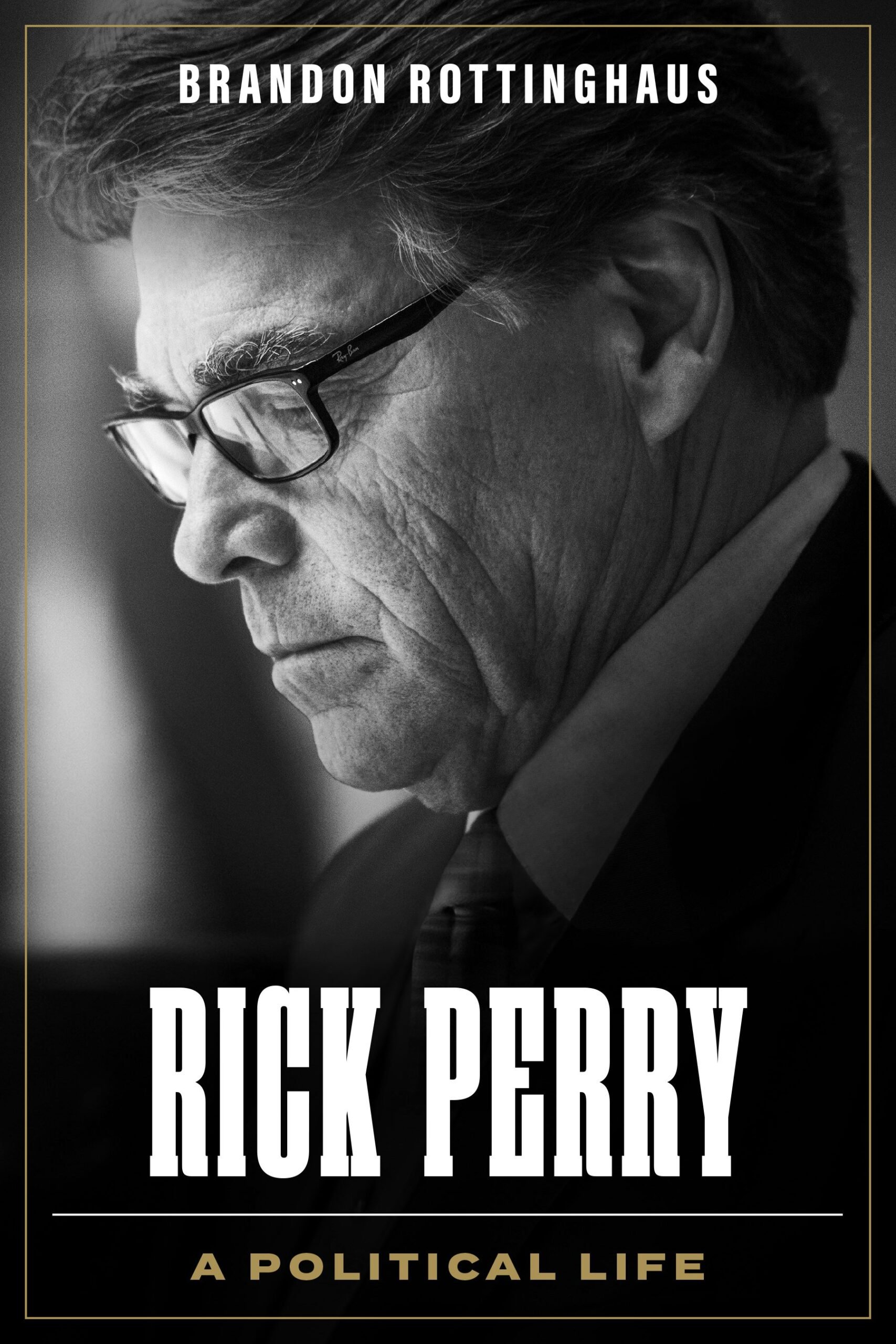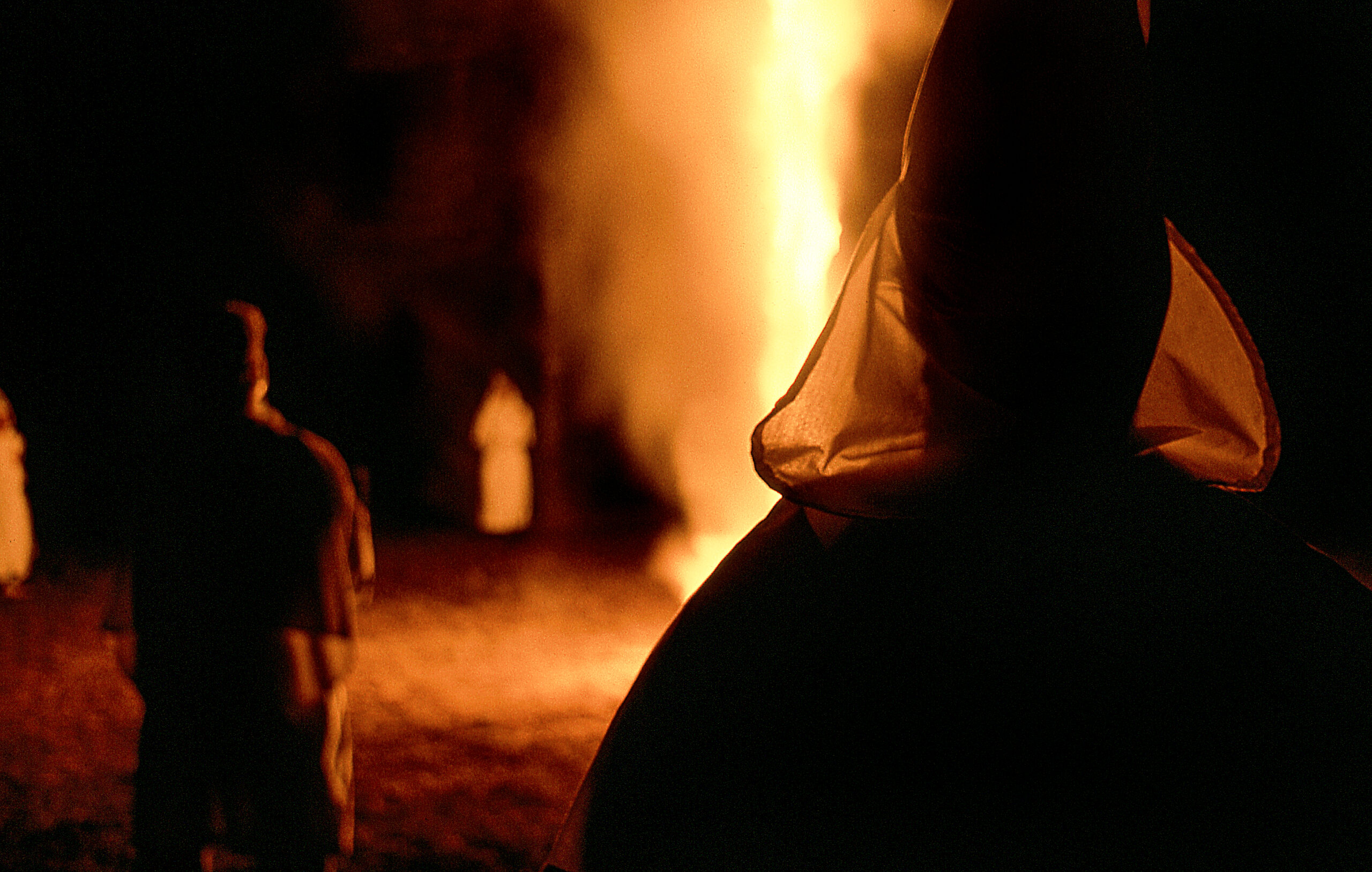
Rick’s Requiem: The Serious Impact of an Unserious Politician
A new book seeks to paint a more measured portrait of the oft-mocked Texas politician.

A version of this story ran in the May / June 2024 issue.
It’s been a decade since the pride of Paint Creek, James Richard Perry—yes, that’s Rick—occupied the Texas governor’s mansion. In that time, Perry launched a second failed presidential bid, cha-cha’ed on national TV as a contestant on Dancing with the Stars, served as former President Donald Trump’s energy secretary (after previously calling the same Donald Trump a “cancer on conservatism”), and ducked a congressional subpoena on the Ukraine impeachment investigation.
More recently, he’s enjoyed a quiet retirement at his rural estate in Round Top, road-tripping in his vintage Chevelle, lending his celebrity status to causes as diverse as the use of pyschedelic drugs to treat combat military veterans and the legalization of sports betting in Texas.
The political and legislative chaos that followed his departure from the governorship, as his Republican successors led the state into radical new waters, has made it easy to forget the scope and consequence of Rick Perry’s record-setting 14-year tenure as Texas’ top executive.
In a sprawling new biography, Rick Perry: A Political Life, Brandon Rottinghaus revives the long, large, and colorful tale of Perry’s rise and reshaping of Texas politics. As any avid consumer of Texas media will recognize, Rottinghaus, a political science professor at the University of Houston, is an oft-quoted source for the state’s political press corps (including this reviewer) who is known for his deep knowledge of Texas politics and history.
During his political heyday, Perry was routinely pilloried by critics as a glad-handing good ol’ boy whose good looks made up for his lack of smarts—a rather cartoonish cowboy who cared more about power and prestige than political principles.
It was none other than Texas Observer matriarch Molly Ivins, one of his most piercing critics, who gifted Perry with his enduring nicknames—“Governor Goodhair” and “The Coiffure”. His rapid ascent in Texas politics was often attributed to being in the right place at the right time (a longtime political friend once said Perry was “the luckiest politician” he’d ever seen), and his ideology was often painted as one of vanity and opportunism, zero-sum partisanship, and obscene cronyism.
With the benefit of hindsight, Rottinghaus seeks to paint a more measured portrait of Perry, contending that his political skills were far greater and the legacy he left more consequential than the prevailing caricature suggests. The book’s austere title and cover art—a close-up shot of a somber, weathered Perry looking down over his once-ridiculed rimmed glasses, conveys a statesman rather than a snake oil salesman.
“The charming rancher, pilot, and politician from West Texas is one of the most important but polarizing figures in Texas history,” Rottinghaus writes. “His career is a reflection of the ways in which politics evolved in Texas and nationally over the nearly forty years he spent in the political arena.”

Clocking in at just over 300 pages, Rottinghaus’ book diligently charts the arc of Perry’s political career—from the early 1980s into the 2020s—which conveniently doubles as a history of Texas’ gradual, then rapid political realignment from a rural state largely dominated by moderate and conservative Democrats to an urban and suburban megastate dominated by ultra-conservative Republicans.
The tome begins with Perry’s childhood growing up in a ranching family in rural West Texas, when the region still formed the backbone of Democrats’ one-party rule, then proceeds to his formative years as the “Yell Leader” at Texas A&M and service as a pilot in the U.S. Air Force. Rottinghaus traces the origins of his political career in the Texas House in the mid-to-late 1980s, where Perry served as a staunchly conservative Democrat and became a key member of a small but effective band of zealous budget hawks known as the “pit bulls.”
Always with an eye on a higher office, Perry saw the political writing on the wall after six years in the Lege and announced he was switching parties ahead of his first bid for statewide office in 1990. As Rottinghaus notes, the Observer castigated him at the time as the “Benedict Arnold of the Democratic Party.” (Perry retorted: “If the Texas Observer ever says anything good about me, then I’ve been hit on the head and they can send me back home.”)
Aided by Republican mastermind Karl Rove, Perry pulled off an upset win against the Democratic Agriculture Commissioner Jim Hightower (a former Observer editor) by leaning heavily into his image as a rural rancher. It was a fateful win for Perry, ultimately setting the stage for his rise to lieutenant governor in 1998, which in turn placed him in line to become the “accidental governor” after George W. Bush’s ascendancy to the White House in 2001.
Chapter by chapter, legislative session by legislative session, campaign by campaign, A Political Life recreates the tectonic electoral shifts and policy issues that defined Perry’s expansive career.
“People either really love Rick Perry or they just have no use for him at all”
Rottinghaus largely tells the story through contemporaneous news accounts, coupled with insight gathered in personal interviews with a few dozen prominent political players in Perry’s orbit—including former legislators, aides, campaign operatives, lobbyists, party activists, and veteran journalists who all had a front row seat to the Perry parade.
This blend of in-the-moment color and retrospective helps provide some depth to Perry’s trajectory; longtime Texas political junkies and newer Lege students alike will benefit from the detailed recounting.
Yet the book is an academic endeavor, not a journalistic one. The political science professor, who admits he is a “prose-averse academic,” brings little of the incisive commentary, revealing palace intrigue, or investigative reportage that generally animates this genre. Instead, Perry is in many ways a character Rottinghaus uses to tell an expansive history of Texas’ political (d)evolution.
Over the course of his governorship, Perry threw his lot in with that of the radical hardcore evangelicals and the conspiratorial tea-partiers. All the while, he remained loyal to the state’s corporate overlords who bankrolled his political machine and profited from his plutocratic policies and indulgent cronyism.
A Political Life makes clear that Perry’s impact on Texas politics is lasting. “When Perry entered political life, Republicans held a few hundred local county offices. By the time he left that number was over three thousand,” Rottinghaus concludes. “The Party had energy but no direction. Perry gave it a steering wheel.”
Rottinghaus ultimately leaves readers to decide whether Perry was more statesman or charlatan. “What I’ve found is people either really love Rick Perry or they just have no use for him at all,” says one of the book’s main Perry whisperers, former San Antonio Democratic state Senator Leticia Van de Putte. Those who don’t like him don’t understand him, and in many ways, she says, “They may not understand Texas totally.”
Yet Perry’s critics across the political spectrum remain convinced his legacy is mostly one of self-serving opportunism—a former state GOP party chair describes his legacy as a sort of “LBJ-style Republicanism.”
Much in the way that Trump has made Dubya’s presidency look comparatively docile, Perry’s legacy benefits greatly from the rose-colored tint of time—and the harsh light of hatred emanating from Texas politics today. In contrast to his successor Governor Greg Abbott and the rest of today’s statewide potentates, Perry looks rather quaint.
Rottinghaus recognizes this and doesn’t let the former governor off the hook. He notes the many ways in which Perry embedded pay-to-play politics in state government and paved the way for Abbott to drag the state further right and radically expand the powers of the governor’s office.
Without a more thorough exploration of what came in the wake of his departure, the full scope of Perry’s legacy still feels incomplete. To be fair, though, that story would fill another book entirely.



